Choosing the best RV/marine distribution charge controller can significantly impact the efficiency and reliability of your power system. The charge controller is a crucial component in managing the energy flow from solar panels or shore power to your battery bank. It regulates voltage and prevents overcharging, which is particularly important for ensuring battery longevity. Below, we will discuss what to look for when selecting a charge controller and highlight some of the top choices available for RV and marine applications.
Key Considerations When Choosing a Charge Controller for RV/Marine Use
- Type of Charge Controller
- PWM (Pulse Width Modulation): PWM controllers are simpler and more affordable. They are ideal for smaller systems where efficiency isn’t a top priority. They’re better suited to RV or marine setups with limited space for solar panels.
- MPPT (Maximum Power Point Tracking): MPPT controllers are more advanced, allowing you to extract the maximum power from your solar panels by optimizing voltage and current levels. They’re more efficient, especially in conditions where solar irradiance changes often, making them the best choice for larger, more sophisticated setups.
- Voltage Compatibility
- Ensure the charge controller can match your battery bank’s voltage (12V, 24V, 48V). The flexibility to handle different voltages is beneficial, particularly if you are considering upgrading your system.
- Current (Amp) Rating
- The amp rating should be sufficient to handle the maximum current from your solar array. It’s often recommended to have a bit of headroom — for instance, if you calculate that you need a 30A controller, you might want to opt for a 40A one.
- Durability and Environmental Protection
- Marine environments are challenging due to the presence of salt and humidity, which can cause corrosion. RVs also experience vibrations and temperature variations. Look for charge controllers that are robust, waterproof, and suitable for marine environments.
- Battery Compatibility
- Ensure the controller supports the type of battery you have — whether lead-acid, AGM, Gel, or lithium-ion. Lithium batteries have different charging profiles and need a charge controller that can handle those requirements effectively.
- Additional Features
- Remote Monitoring: Bluetooth or WiFi capability for remote monitoring through a mobile app or web interface can be very useful for managing your system without having to be physically near the controller.
- Multiple Inputs: For marine applications, it is helpful to have multiple inputs that can handle solar panels, wind turbines, or alternator inputs.
- Temperature Compensation: This feature adjusts the charging parameters based on temperature to protect your batteries.
Top Choices for RV/Marine Distribution Charge Controllers
1. Victron Energy SmartSolar MPPT Charge Controller
- Type: MPPT
- Voltage Compatibility: 12V/24V/48V (auto-select)
- Amp Rating: Available in various sizes (10A to 100A)
- Features:
- Bluetooth Connectivity: Allows for easy monitoring through the VictronConnect app.
- Durable and Reliable: Built with high-quality components, making it suitable for harsh environments.
- Advanced MPPT Technology: Maximizes energy harvest and efficiency.
- Pros:
- Excellent for remote monitoring.
- Highly efficient with a wide voltage input range.
- Cons:
- Higher price point compared to PWM controllers.
- Ideal For: Those with larger solar arrays, lithium batteries, and who need a robust and highly efficient system.
2. Renogy Rover MPPT Charge Controller
- Type: MPPT
- Voltage Compatibility: 12V/24V (auto-recognition)
- Amp Rating: Available in 20A, 40A, and 60A versions
- Features:
- LCD Screen: Displays system information for easy monitoring.
- Temperature Sensor: Helps maintain battery health by adjusting charging based on temperature.
- RS232 Port: Connects to a Renogy BT-1 Bluetooth module for remote monitoring.
- Pros:
- Cost-effective option with many features typically found on higher-end models.
- Suitable for both lead-acid and lithium-ion batteries.
- Cons:
- Limited to 12V and 24V battery systems, not ideal if you plan to upgrade to 48V.
- Ideal For: Budget-conscious users who need the efficiency of MPPT in smaller RV or marine setups.
3. Morningstar ProStar MPPT Charge Controller
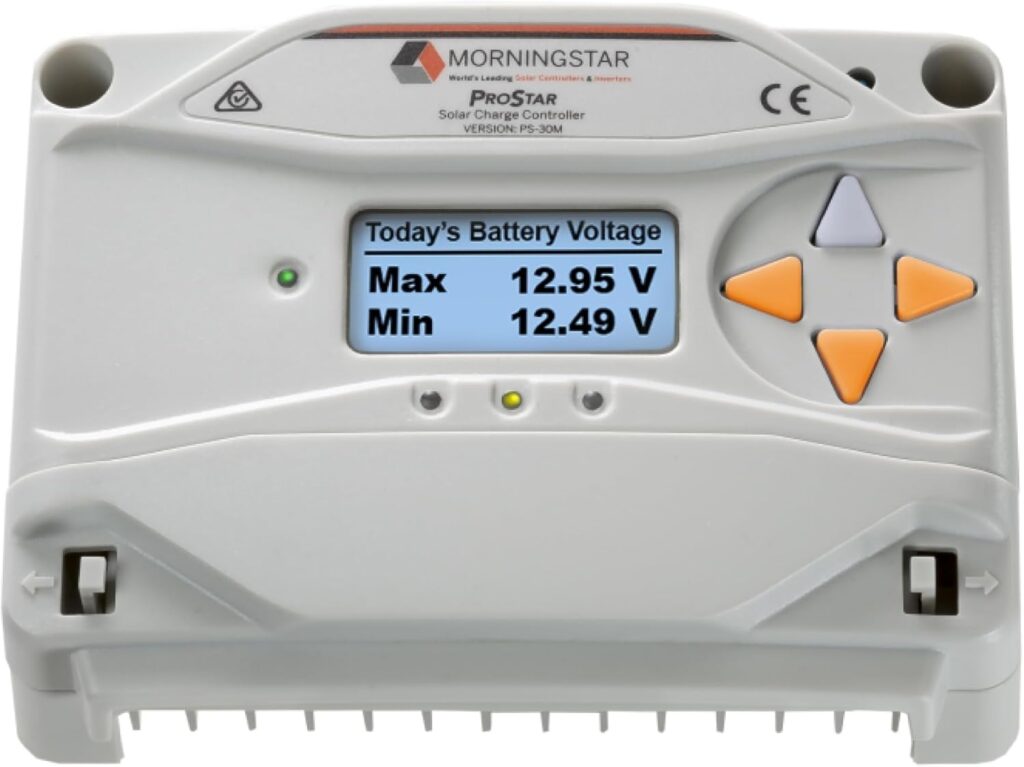
- Type: MPPT
- Voltage Compatibility: 12V/24V
- Amp Rating: 25A and 40A
- Features:
- High-Temperature Protection: Built to withstand extreme environments, perfect for marine use.
- Meter Display: Provides real-time information on charging parameters and battery health.
- Multiple Load Control: Can manage DC loads directly, which is beneficial for off-grid RVs and boats.
- Pros:
- Very reliable with excellent build quality.
- Certified for hazardous environments (marine).
- Cons:
- More expensive compared to some other controllers with similar power ratings.
- Ideal For: Those in need of a durable, marine-certified controller that provides additional load management capabilities.
4. Outback FlexMax 60/80 Charge Controller
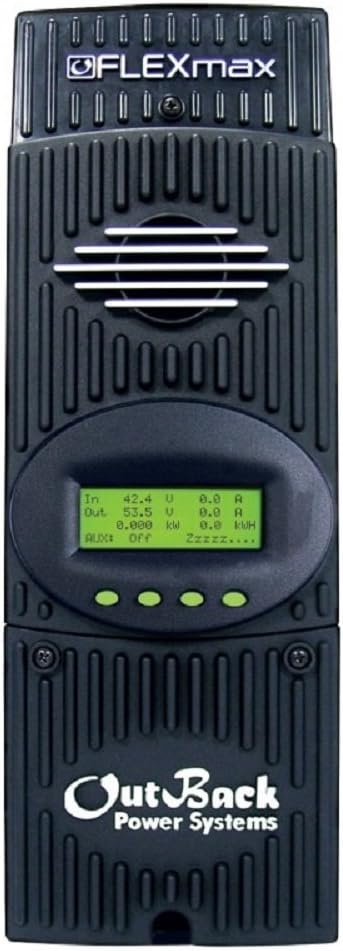
- Type: MPPT
- Voltage Compatibility: 12V/24V/48V
- Amp Rating: 60A or 80A
- Features:
- Advanced MPPT: The controller can track the optimal power point under various conditions.
- Multiple Voltage Options: Works with different battery banks and is easily configurable.
- Built-in Data Logging: Allows for tracking performance history up to 128 days.
- Pros:
- Extremely efficient with high conversion efficiency.
- Proven reliability in harsh off-grid environments.
- Cons:
- Physically larger, requiring more installation space.
- Higher cost compared to less advanced controllers.
- Ideal For: Large RVs or marine systems with heavy solar setups and multiple battery banks, where advanced MPPT features are required.
5. EPEver Tracer BN Series MPPT Charge Controller
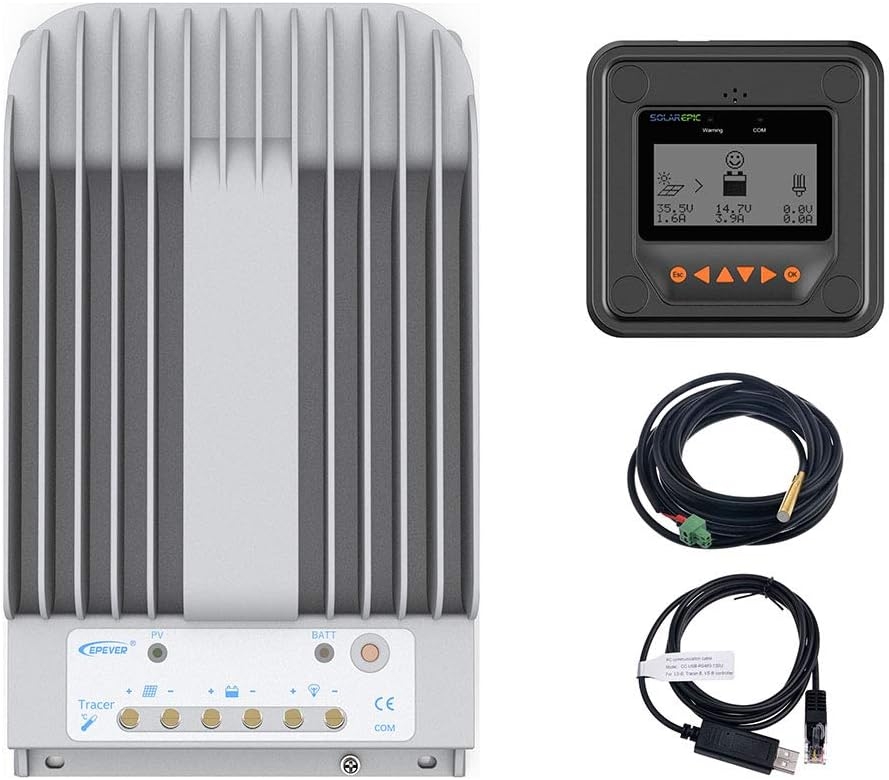
- Type: MPPT
- Voltage Compatibility: 12V/24V
- Amp Rating: Available from 10A to 40A
- Features:
- LCD Display: Provides system status and charging parameters.
- Remote Temperature Sensor and Monitoring Options: Can connect to a remote display or Bluetooth module.
- Multiple Battery Compatibility: Works with various types, including lithium-ion.
- Pros:
- Affordable option with MPPT efficiency.
- Good value with multiple features.
- Cons:
- Not as robust or well-suited for extremely harsh environments as other brands.
- Ideal For: Smaller setups where cost is a concern, but MPPT is still desirable for efficiency.
Conclusion: Finding the Right Charge Controller
Selecting the best RV/marine distribution charge controller depends on your specific power needs, budget, and whether you require advanced monitoring and durability. Here’s a quick recap:
- If you need the best overall performance with advanced features: The Victron SmartSolar is highly recommended, especially for those who want maximum efficiency and remote monitoring capabilities.
- For budget-conscious setups: Renogy Rover offers excellent value while still providing MPPT efficiency, ideal for smaller RVs or boats.
- For harsh marine environments or advanced off-grid applications: The Morningstar ProStar or Outback FlexMax controllers are excellent for their durability and reliability.
- For those who need a capable but affordable MPPT option: EPEver Tracer series offers good performance without breaking the bank.
In all cases, ensure the controller you choose is appropriately sized for your solar array and battery bank, has the necessary environmental protection features for marine or mobile environments, and supports your battery type. Investing in a quality charge controller helps protect your batteries, optimize energy use, and ultimately extend the lifespan of your entire power system.


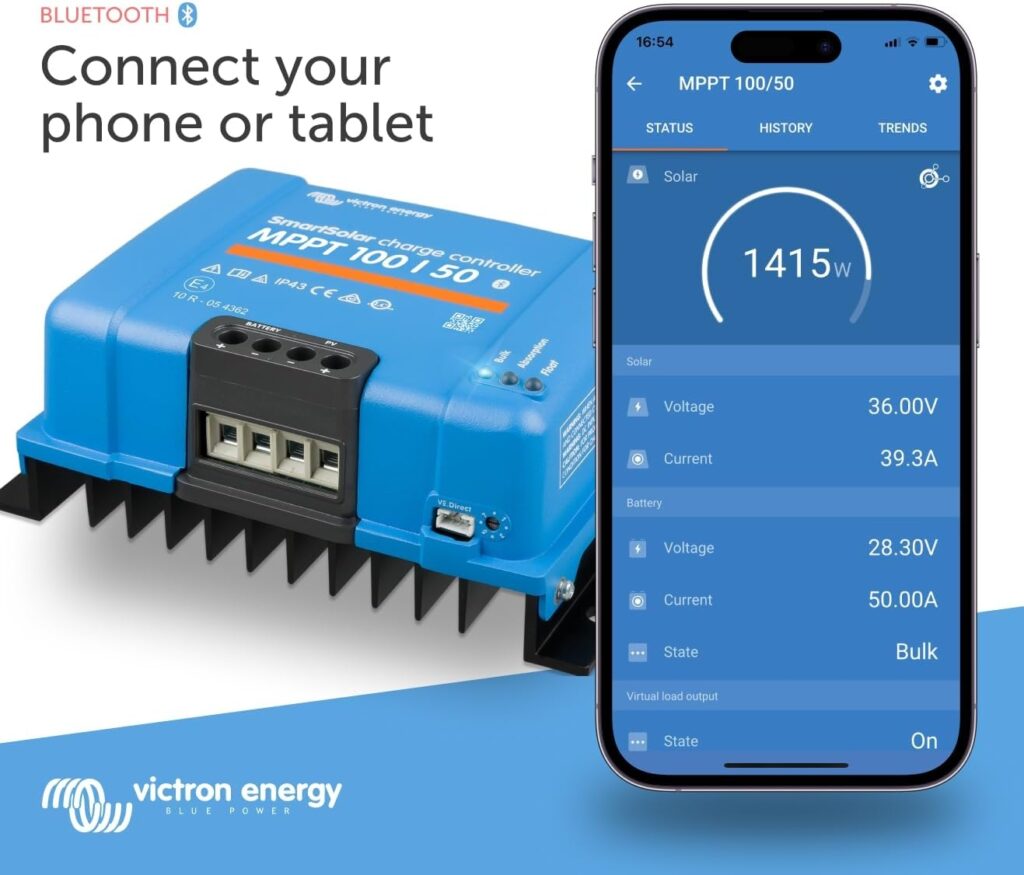
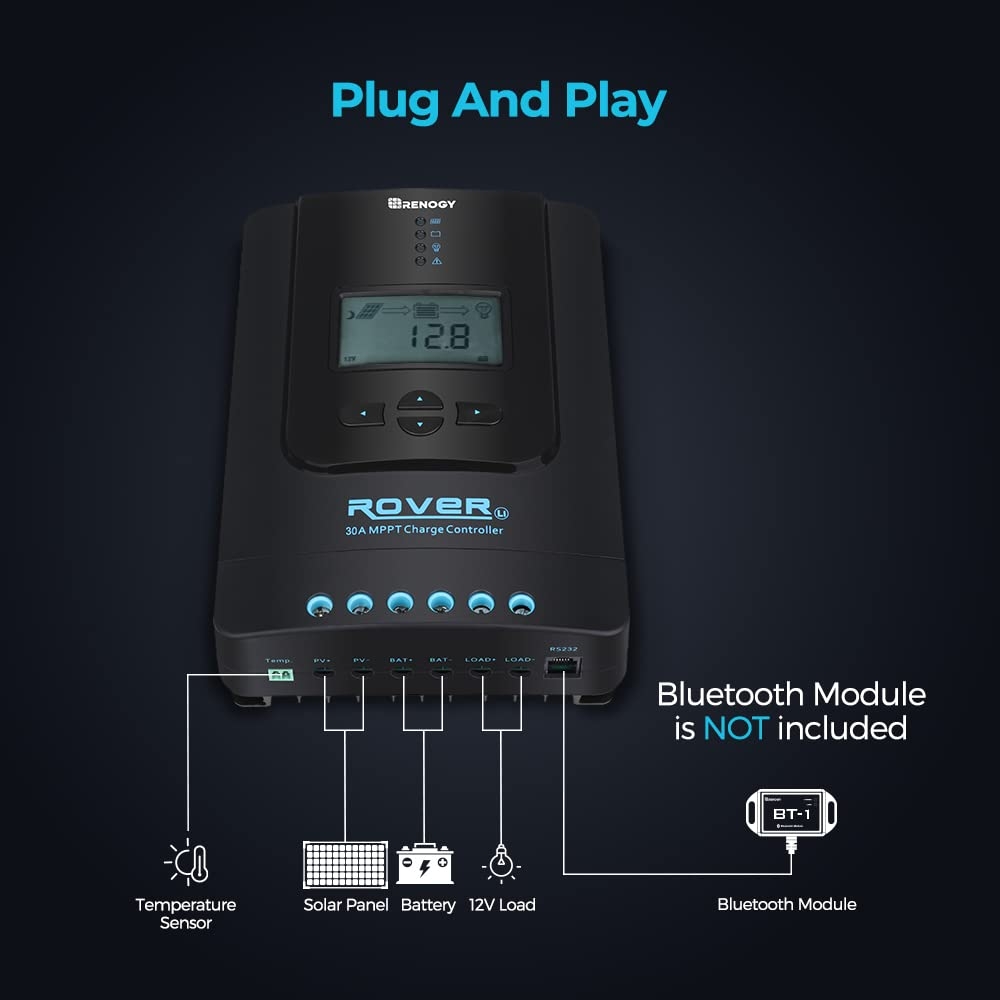


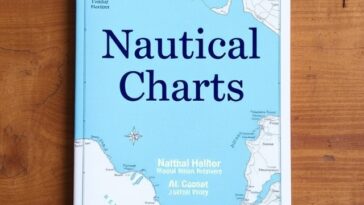
 No products in the cart.
No products in the cart.
Comment (1)
Comments are closed.